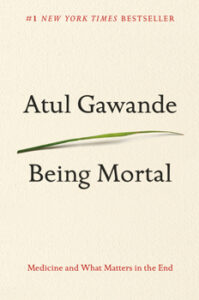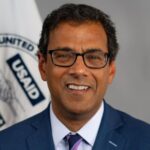By Elliott Brack
Editor and Publisher, GwinnettForum
AUG. 27, 2024 | Every now and then, a book changes your life. Being Mortal, by Atul Gawande, did just that for me.
![]() First, it got me to exercising, that is, back to walking, which I have returned to doing for the last two weeks each day since reading the first part of the book. And yes, already I can feel that I am making progress in depth and strength from this walking. This alone made reading the book worthwhile. And yes, I’ll continue to walk daily.
First, it got me to exercising, that is, back to walking, which I have returned to doing for the last two weeks each day since reading the first part of the book. And yes, already I can feel that I am making progress in depth and strength from this walking. This alone made reading the book worthwhile. And yes, I’ll continue to walk daily.
Secondly, the book gets you thinking about what could happen at your own life’s end, which most of us just put off thinking about. The author forces you to consider what you can do to make dying less onerous for you and others.
 The author is a surgeon, and often explains ideas through stories about his patients as they came toward their life’s end. But that is the more technical, and less fulfilling, part of the book.
The author is a surgeon, and often explains ideas through stories about his patients as they came toward their life’s end. But that is the more technical, and less fulfilling, part of the book.
For those of you who are elderly, ask a question for you to answer: can you … “eat, dress, bathe, groom, get out of bed, get out of a chair, walk and use the toilet” all by yourself? If you cannot do these, then you no longer have the capacity for basic independence. The author restates it in another way: If you cannot “shop for yourself, prepare your own food, maintain your housekeeping, do your laundry, manage your medications, make phone calls, travel on your own and handle your finances,” then you then don’t have basic independence.
Those questions hit me hard, realizing I need more body strength to do these simple functions. Hence the return to walking.
There are several other directions the book takes. The key one is that for those nearing death, the family should seriously consider home hospice. After all, who among us wants to die in a hospital, hooked to several machines, to keep us going?
As the author says, “Medical professionals concentrate on repair of health, not sustenance of the soul.” Meanwhile, hospice professionals want to see the patient live as full a life as possible, while ensuring that they are without pain, in dignity, and are among their loved ones in their own home.
Dr. Gawande has this conviction: “Our most cruel failure of how we treat the sick and the aged is the failure to recognize that they have priorities beyond merely being safe and living longer; that the chance to shape one’s story is essential to sustaining meaning in life….”
He points out that if a person is near dying and under hospice care, when matters turn worse, and the patient seems to be nearer death, the tendency of family members is to call 911. But that is the wrong next step. Emergency medical technicians will come in an ambulance, and speed the patient to the hospital, where the hospital will try to prolong life.
Instead, the family should call hospice, who will come and allow matters to take their course, giving the patient care to relieve suffering, be in no pain, with the family there, and die a natural death at home.
Some families find calling hospice, instead of 911, hard to do.
Atul Gawande sums it up with these words about the medical profession: “We’ve been wrong about what our job is in medicine. We think our job is to ensure health and survival. But really it is larger than that. It is to enable well-being.”
Read Being Mortal, no matter what!
- Have a comment? Click here to send an email.











Follow Us